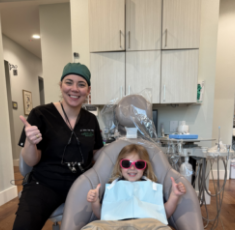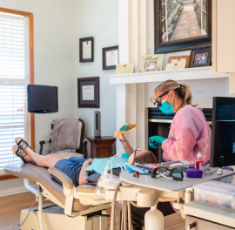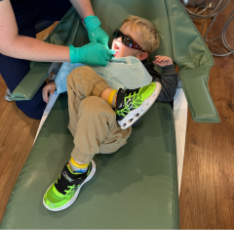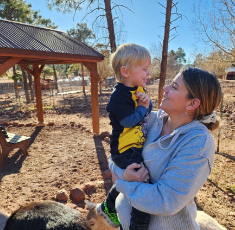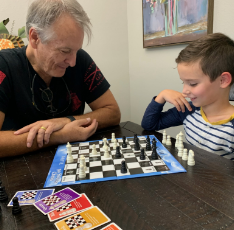More Attractive Place?
Sleep Apnea Treatment Denton
Helping to Keep Your Airway Open
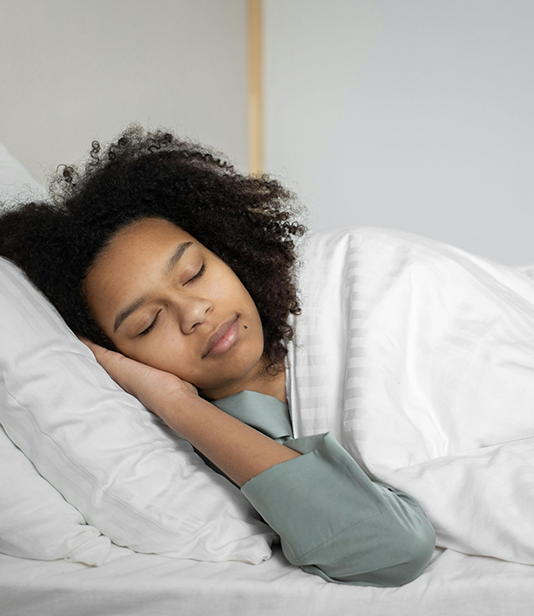
Being unable to breathe is one of the most frightening things a person can experience. If your airway becomes obstructed while sleeping, it will cause a startle response to wake you up and begin gasping for air. And when the obstruction occurs, often for more than a minute at a time, and often dozens of times each night, your system is starved of oxygen, your sleep is severely disrupted, and your body’s attempts to pull air past the obstruction causes serious stress on the heart, and all the abdominal organs. 22 million people in the US have some degree of sleep apnea. If you are, or you suspect someone you love is one of these, Dr Ruehle can help. In consultation with your physician, we can offer sleep apnea treatment in Denton with oral devices that don’t require you to wear a CPAP.
Why Choose Garden Oaks Family & Cosmetic Dentistry for Sleep Apnea Treatment?
- Experienced Dentist with Years of Sleep Apnea Training
- Privately Owned Dental Practice Here to Help Patients of All Ages
- Comfort-Focused Approach When Treating Dental Patients
What Is Sleep Apnea?
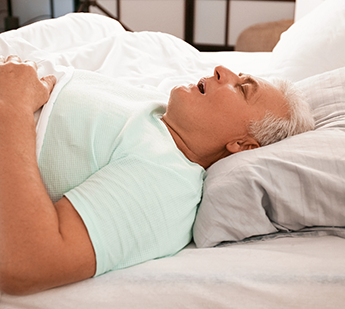
Affecting millions of people in the United States, sleep apnea is a condition in which the airway becomes blocked while asleep, preventing air from reaching the lungs and causing a depletion of the oxygen levels in the blood necessary to supply oxygen to the brain, organs and tissues. There are several types of sleep apnea, OSA, or Obstructive Sleep Apnea being the most common. Individuals with mild sleep apnea will experience shorter obstructions and may have 5-15 of these per hour. Severe sleep apnea will cause longer obstructions, often a minute or more, and will have over 30 per hour with a significant decrease in blood oxygen levels.
When we sleep, the muscles in the head and neck that keep the airway open during the day, relax and all the tissues in the front of the neck, along with the tongue compress the airway. When this happens, the airway can become as narrow as a coffee stirrer, and the suction created by the diaphragm causes the pliable airway to completely collapse. The lack of air flow, depletes the oxygen levels in the blood, causing damage throughout the body, and the frequent startle response that the brain triggers, interrupts sleep constantly.
Symptoms of Sleep Apnea
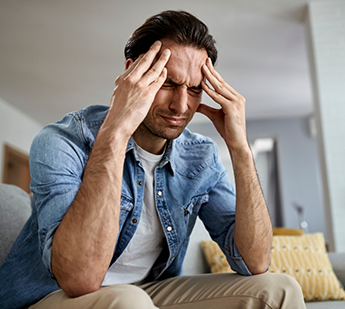
While it is possible to be unaware if you are suffering from sleep apnea, especially if you do not have a bed partner, there are some signs to be aware of:
- Chronic daily fatigue
- Loud snoring
- Hoarse or dry mouth
- Irritability
- Inability to focus or remember things
- Ceased breathing throughout the night
- Frequent urination at night
- Morning headaches
- High blood pressure, espeicially if you are on more than one medication to control it
- Gastric reflux
- GERD
- Clenching, grinding or bruxing your teeth
Risk Factors of Sleep Apnea
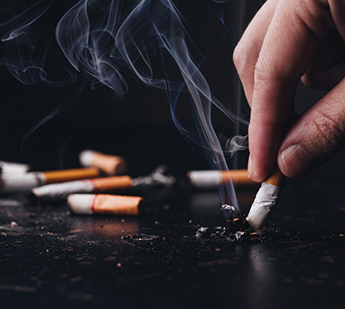
Identifying the underlying cause of your sleep apnea is important, as it can help Dr. Ruehle better understand how to treat the problem more comprehensively. Some of the most common reasons sleep apnea can occur include:
- Obesity or being overweight, especially if you have fat accumulations around your neck that can cause a narrower airway. In addition, a significant amount of fat can accumulate in the back of the tongue which narrows the upper airway.
- Age - As we age the collagen in our muscles and connective tissues becomes more pliable allowing tissues and muscle to lose tone. The tissues at the back of the roof of the mouth, and the tonsillar pillars on the sides of the throat become more flexible with age and sag down and in, narrowing the upper airway. The muscles in the floor of the mouth that control the position of the tongue and suspend the hyoid bone in the front of the throat also weaken allowing the tongue to fall back into the upper airway.
- Smoking because it causes inflammation within the upper airway.
- Alcohol or sedatives before bed - it causes the muscles in your throat to relax, making it more likely for them to collapse and restrict your airway.
- Genetics; believe it or not, some people are simply genetically predisposed to conditions like sleep apnea.
- Inability to breathe through your nose at night – Breathing through the mouth, rather than the nose, causes turbulence in the airflow that can trigger collapse of the airway.
- Hormonal changes, especially those that can occur as a result of pregnancy.
Sleep Apnea Testing
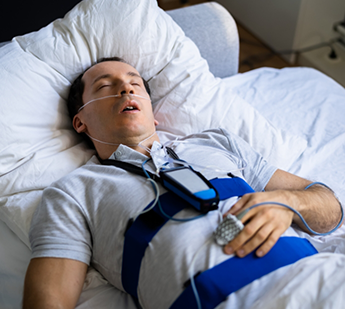
Before proper treatment can be provided, a sleep test must be performed, to determine the type and severity of the apnea. Today this is commonly done at home rather than in a sleep lab. The test can be ordered by your physician or sleep specialist, or we can refer you to a testing service. The testing lab will start you with a virtual consult with a medical professional certified to screen for sleep apnea. They will send the study device to your home and read and interpret the results that are sent to them electronically. The device tracks oxygen levels, heart rate, detects your body straining to breath past the obstruction, and tracks changes in sleep position, all of which are needed to accurately diagnose your condition. They will then do a second virtual consult, explain the results, and recommend treatment options.
Sleep Apnea Treatment Options
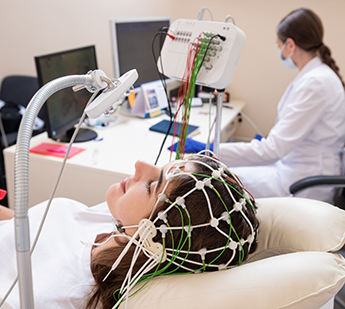
The traditional treatment for sleep apnea is either a CPAP (continuous positive airway pressure), or a BiPAP, a continuously adjustable form of CPAP. While successful for some, many people cannot tolerate the mask and hoses. An alternative for many with mild to moderate sleep apnea is known as a Mandibular Advancement Device (MAD). As a Diplomate of the American Board of Dental Sleep Medicine, Dr Ruehle is extensively trained in the use and monitoring of MADs. These devices fit over your upper and lower teeth, gently holding the lower jaw forward, which pulls the muscles and tissues under the tongue forward to hold the airway open when the muscles relax in sleep. Because the device has no external attachments you can get up in the night as needed without needing to remove the device. Because it actually gets worn all night, you enjoy a comfortable, restful night's sleep.


